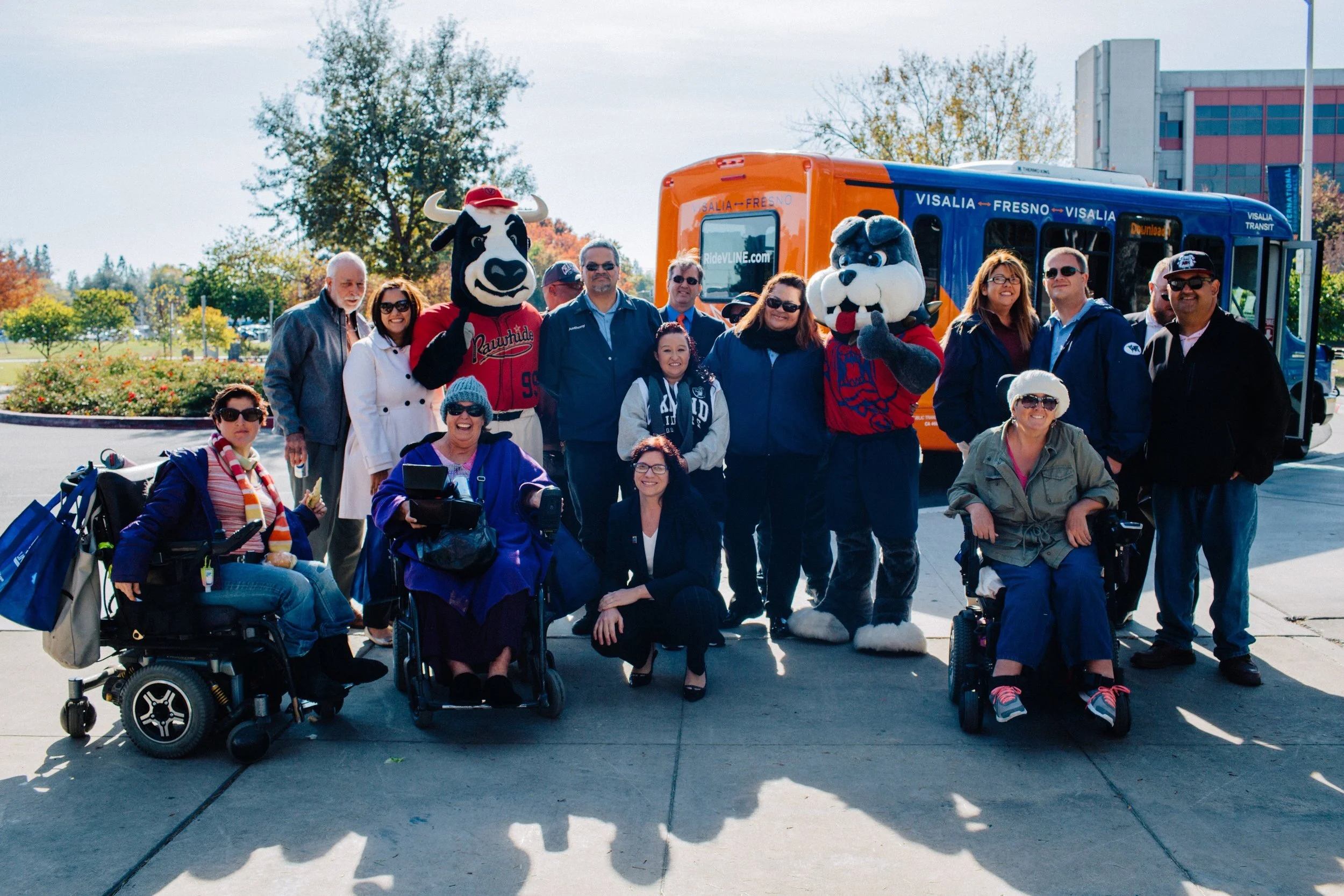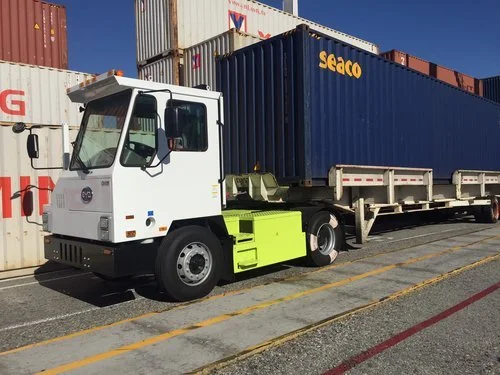This program will deploy 38 electric yard trucks, 9 electric gantry cranes, 18 electric heavy lift forklifts, and 15 zero-emission Class 8 trucks. The program is also including a workforce development component with curriculum being developed to support the deployment of this technology with local school districts near the three port locations, community colleges and Long Beach State University.
San Gabriel Residents and Businesses Save Water and Energy with Appliance Rebates
New Greenspaces Help Grow Community Connectivity in Coachella
El Centro Free Trees Program Provides Education, Shade, and Cleaner Air
Free Transit Helps Students DASH to Class
The City of Los Angeles Department of Transportation (LADOT) is providing free, safe, and reliable transportation to students across Los Angeles. The “DASH to Class” program allows all K-12, college, and vocational students with a Student Reduced Fare pass to ride free on LADOT Transit’s DASH buses—even for non-school related trips.
Visalia-Fresno Shuttle Serves Students, Travelers, and Residents
Deep in California’s Central Valley, the small City of Visalia took a big step when it started its Visalia-Fresno Shuttle Project in November 2015. The five-stop “V-line,” part of the Visalia Transit system, has a stop for everyone – students headed to Fresno State University, travelers bound for Fresno Yosemite International Airport, even visitors off to see Fresno’s leafy Courthouse Park.
Piloting Advanced Technology Drayage Trucks
Demonstrating Zero-Emission Port Technologies in Long Beach
Thanks to a demonstration project testing advanced technologies, the Port of Los Angeles is serving as a proving ground to show how large industrial facilities can operate sustainably.
The Green Omni Terminal Demonstration Project is a full-scale demonstration of zero- and near-zero emission technologies at a working marine terminal. At full build-out, the 40-acre terminal will be the world’s first marine terminal to generate all of its energy needs from renewable sources.
Building Coastal Resilience in Santa Cruz
In light of critical dangers to the city of Santa Cruz’s roughly 4.6 miles of coastline posed by climate change, the city is using a $200,000 grant from California Climate Investments through the Coastal Resilience LCP Planning Grant Program to develop strategies and policies intended to protect public beach access, prevent community displacement, and build resiliency against future coastal hazards.
Clean Mobility Options Connect Rural Communities with Reliable Transportation
BlueLA Car Share Pilot Expands Clean Mobility Options for Low-income Angelenos
Our Community CarShare Program Supports Low-Income Sacramentans
Expanding Rail Car Capacity and Community Connections in Marin and Sonoma Counties
Sonoma and Marin Counties received an $11 million grant to help pay for four newly manufactured rail passenger vehicles to complete the SMART Rail Car Capacity Project. Together with a newly launched 43-mile SMART passenger rail service across Marin and Sonoma Counties, these rail cars will connect communities, provide a transit link between job markets and worker populations and provide people with a sustainable transportation option.
Technical Assistance Supports Wildfire Recovery Efforts in Sonoma County
Transformative Climate Communities Supports a Vision for a Healthier Watts
Community Members Lead Transformative Climate Solutions in Southwest Fresno
Connecting a Coachella Valley Elementary School with Safe and Resilient Water Supplies
Westside Elementary School in the Coachella Valley relied solely on well water for its drinking water. The well had an unfortunate history of both contamination and the inability to provide adequate water supplies to prevent fires. Thanks in part to a nearly $370,000 from California Climate Investments through the Safe and Affordable Drinking Water Fund, these problems have been solved.
North Coast Resource Partnership Plans for Forest, Watershed, and Community Health
The North Coast Resource Partnership is a unique coalition of North Coast Tribes and seven counties that represent the North Coast and Klamath/Interior Coast Ranges ecological regions, both of which are important carbon storage areas in California. To help protect the health of forests in this territory, the North Coast Resource Partnership is using $4,037,500 of California Climate Investments funding through the Regional Forest and Fire Capacity Program to develop a regional priority plan that will generate implementation‑ready projects and provide funding for demonstration projects.
Prescribed Fire Reporting and Air Monitoring in Shasta County
The Shasta County Air Quality Management District is doing its part to restore resilient, carbon‑storing, and wildfire‑resistant forests and protect public health across northern California with help from a $159,000 grant from California Climate Investments through the California Air Resources Board’s (CARB) Prescribed Fire Reporting and Monitoring Program. The program supports state forest management and wildfire resilience goals by providing local resources that improve the prescribed burn planning, smoke monitoring, and air quality data collection. These improvements facilitate the implementation of prescribed burning, while also providing the Shasta County Air Quality Management District and the public better information on smoke in order to protect human health.






















